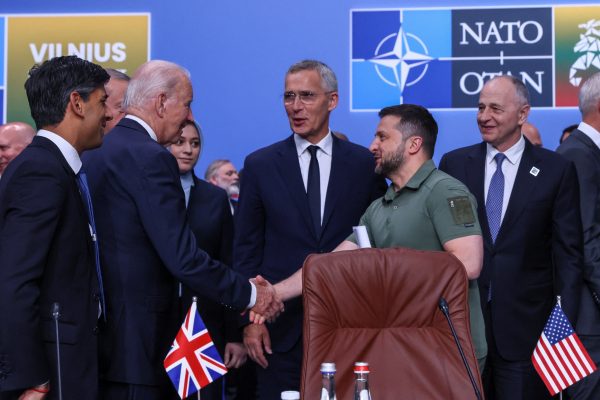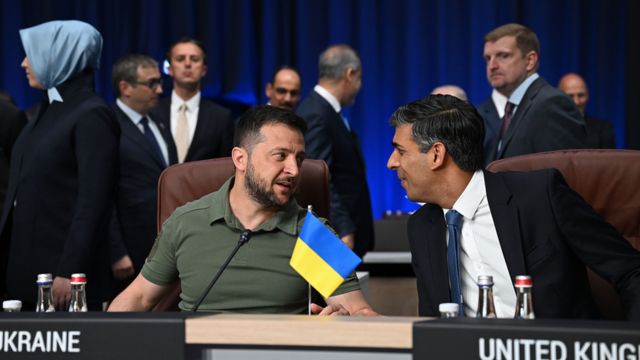NATO’s Response to Ukraine: A Diplomatic Reality Check
Ukrainian President Volodymyr Zelensky arrived at the NATO summit in Vilnius, Lithuania, with high hopes. He sought assurance that Ukraine would join NATO after the war with Russia concludes. However, NATO’s response to Ukraine was less than definitive, stating that Ukraine would be invited to join “when allies agree and conditions are met”. This noncommittal response left Zelensky frustrated and calling the situation “absurd”.
NATO’s response to Ukraine has significant implications. While the alliance’s leaders assured Zelensky that Ukraine would eventually join NATO, the lack of a clear timeline has caused discontent.
The UK’s Prime Minister Rishi Sunak and NATO Secretary-General Jens Stoltenberg both expressed support for Ukraine’s membership, but the official stance remains cautious. NATO’s response to Ukraine, while supportive in words, has not yet translated into definitive action.
You may also like: Putin Warns NATO Against Further Involvement in Ukraine War and Highlights Russia’s Nuclear Weapons
The Significance of NATO’s Response to Ukraine

NATO’s response to Ukraine is a critical factor in the ongoing conflict with Russia. Ukraine views NATO membership as a beacon of hope and a guarantee of security against future Russian aggression.
However, the conditions for membership, as outlined by NATO, remain “vague” according to Zelensky. This ambiguity in NATO’s response to has added to the uncertainty facing the country.
Despite the diplomatic hurdles, Ukraine’s request for NATO membership remains a priority for the country. The British Medical Association (BMA) urges the government to reconsider their stance and return to negotiations.
Meanwhile, senior doctors and consultants are planning their own strike, further disrupting the healthcare system. Despite the challenges, Ukraine remains steadfast in its pursuit of NATO membership. The future of NATO’s response to Ukraine will be a key factor in determining the country’s security and geopolitical standing.
The NATO summit served as a diplomatic reality check for Ukraine. While the alliance’s leaders offered warm words and assurances, the lack of a clear commitment to Ukraine’s membership request underscores the political complexities involved.
As Ukraine continues to navigate these complexities, it remains to be seen how NATO’s response to Ukraine will evolve in the future. The diplomatic reality check that Ukraine has received is a reminder of the challenges that lie ahead in its pursuit of NATO membership.





